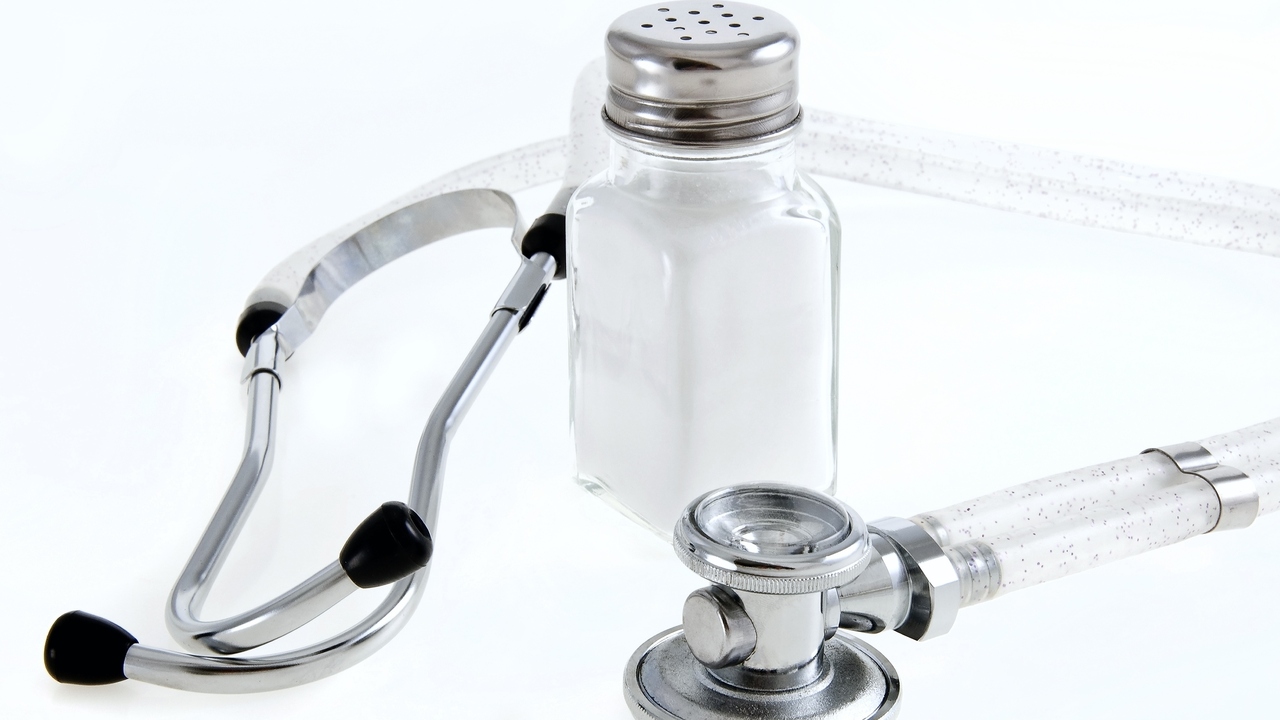 Oleksandr Bilozerov/PhotoSpin
Oleksandr Bilozerov/PhotoSpin
Earlier this week I had the opportunity to interview Dr. Britt Burton-Freeman, Ph.D., who is the director of the Center for Nutrition Research, at the Institute for Food Safety and Health at Illinois Institute of Technology, as well as an an associate research nutritionist at the University of California, Davis.
We discussed the results of The Coronary Artery Risk Development in Young Adults Study (CARDIA) and how individuals can take the results from the study to improve their own cardiovascular health.
CARDIA is a 25-year study that shows a link between prehypertension in young adults to heart problems later in life. Dr. Burton-Freeman offered great insight about what you can do today to have a healthy heart for many tomorrows down the road.
Sheila Amir:
The CARDIA study links prehypertension in young adults to signs of heart disease in middle age, specifically the left ventricle. Where is a reliable place people can get their blood pressure taken and how often?
Dr. Burton-Freeman:
Pharmacy locations often provide blood pressure checks nowadays. Ask your local pharmacists. Community Centers or Park and Recreation Centers are other places where scheduled checks might be available.
We advise people to have their blood pressure measured at least once a year, but more often helps people stay on top of their health, and allows for detection of rising blood pressure numbers that might need attention early.
SA:
Honestly, many people don’t know what their blood pressure levels should be or what they mean. Can you explain the blood value ranges and what each number indicates?
Dr. Burton-Freeman:
When blood pressure is measured, two numbers are reported. One number is the systolic pressure and the other is called the diastolic pressure.
Systolic blood pressure measures the pressure in the arteries when the heart muscle contracts. Diastolic blood pressure measures the pressure in the arteries in between heart muscle contractions, when the heart is resting and refilling with blood (preparing for the next contraction).
Of the two numbers measured and recorded, systolic pressure is the higher number, since pressure is higher in the arteries when the heart muscle contracts and diastolic pressure is the lower number because there is less pressure during rest. Blood pressures are expressed in millimeters of mercury (mm Hg) — for example, 115/76 mm Hg.
Healthy blood pressure is less than 120 mm Hg for systolic pressure and less than 80 mm Hg for diastolic blood pressure.
People with prehypertension will have consistent systolic blood pressure readings of 120-139 mm Hg or consistent diastolic blood pressure reading between 80-89 mm Hg. People who have prehypertension are at risk for developing hypertension — systolic and diastolic blood pressures of equal to or greater than 140 mm Hg or 90 mm Hg, respectively.
SA:
What are the top three to five pieces of advice you would give a young adult with prehypertension, to help them start turning things around?
Dr. Burton-Freeman:
If the young adult is overweight or obese, they should achieve and maintain a healthy body weight for their height. This will include modifying dietary patterns and increasing physical activity to lose weight and keep it off.
If they smoke, stop smoking.
Modify dietary patterns by:
1) increasing the amount and variety of fruits and vegetables eaten
2) eating more fiber-rich whole grains
3) choosing low-fat dairy products
4) eating less processed and cured meats. This pattern will help reduce sodium intake and increase minerals, phytochemicals and fibers that promote a healthy functioning heart and vasculature.
Get enough sleep and drink water for proper hydration.
SA:
How does a person know if their blood pressure is due to genetics, or if the behaviors that lead to high blood pressure tend to run in the family?
Dr. Burton-Freeman:
Knowing your family history provides insight to whether high blood pressure is due to genetics or to lifestyle choices. Sometimes it’s both genetics and lifestyle behavior.
Some people may have the predisposition for high blood pressure, but can maintain their blood pressure within the normal range without medication by eating a diet consistent with the Dietary Guidelines for Americans, exercising regularly, and managing stress.
When diet and lifestyle can’t bring blood pressure into the normal range alone, your doctor may suggest adding a dietary supplement researched to help lower blood pressure or start medication. See your doctor for what is best for you.
SA:
In recent years, I’ve read articles stating that if an overweight/obese person makes changes to reduce their weight by just 10 percent, they will see improvement in their health, including blood values. Would someone with prehypertension start to see improvements in their blood pressure if they lost 10 percent of their body weight?
Dr. Burton-Freeman:
Absolutely! Weight loss, even just 10 percent, can improve metabolic issues and reduce blood pressure. If a person is overweight or obese and has prehypertension, making diet and lifestyle changes to lose weight is the standard of care to reduce blood pressure back to the normal range.
SA:
Can you briefly summarize for the laymen, what affects blood pressure, i.e. what makes the heart have to work harder?
Blood pressure is the force of blood pushing against blood vessel walls. There are many things that can affect blood pressure. Age, gender and ethnicity are the effectors that we cannot do much about. It's important to know that blood pressure fluctuates throughout the day, depending on what we are doing (resting or active) and will also change depending on our stress level.
When we are at rest, such as sitting in a chair or sitting in front of a computer, blood pressure is generally low. When we are active around the house or office, or exercising, blood pressure increases. If we are stressed, blood pressure increases. Blood pressure is also affected by blood volume (water balance) and electrolyte balance. The strength of the heart can also influence blood pressure.
SA:
Tell me a bit about stress and blood pressure and why it’s important to learn to cope with stress as a young adult for long term heart health?
Dr. Burton-Freeman:
Situational stress increases hormones that make the heart beat faster and blood vessels to narrow (constrict). Stress makes the heart work harder. Having constantly elevated blood pressure increases risk of injury to blood vessels, kidney and the heart. Stress management is important for long-term health.
However, some people deal with stress in unhealthy ways, such as drinking too much alcohol, eating too much food resulting in weight gain, smoking, among other behaviors. Ideally, people should choose ways to manage their stress using techniques known to have an overall health benefit. Some of these options include yoga, meditation, exercise and gardening, among other activities.
SA:
What supplements would you recommend for healthy blood pressure?
Dr. Burton-Freeman:
Fish oil omega-3 fatty acids are most known for their effects on reducing triglycerides in the blood. They also have blood pressure lowering capability. Grape seed extract, specifically MegaNatural-BP, is a natural product with clinical research showing blood pressure-lowering benefits. MegaNatural-BP helps people with elevated blood pressure in the prehypertension range achieve a health blood pressure and maintain it.
SA:
What realistic, delicious dietary changes would you recommend that young adults adopt now for lifelong heart health?
Dr. Burton-Freeman:
I personally think that adding colorful fruits and vegetables to any menu plan makes for a tastier, more aesthetically pleasing meal experience. The more variety, the more fun in color, texture and flavor. Research on berries is showing that the benefits of red, blue and purple berries are heart-healthy.
Other delicious healthy options for the heart include walnuts, almonds and avocados providing healthy fats, fiber and an array of plant bioactives. I also like lean meats and fish a couple times a week, atop a savory bed of rich greens. Arugula is one of my favorites, but others may find it a bit strong. Mixing arugula with other lighter greens or grated vegetables makes an equally nice nutrient-rich meal base.
SA:
Can you explain what damage to the left ventricle would mean to the laymen?
Dr. Burton-Freeman:
Damage to the left ventricle of the heart could mean deleterious consequences. The ventricles of the heart are major pumping chambers, particularly the left ventricle, which pumps oxygen-rich blood out to the rest of the body. A damaged or weakened left ventricle can lead to heart failure, including sudden cardiac death.
SA:
Both I and the staff at EmpowHER would like to thank you for your time and contribution. It helps knowing what blood pressure is, what is the health range to strive for, and what we can do to improve heart health. Knowing the facts is the first step. I personally liked the part about eating all the delicious, healthy food.
Reviewed Sept 2, 2015
by Michele Blacksberg RN
Edited by Jody Smith






Add a CommentComments
There are no comments yet. Be the first one and get the conversation started!